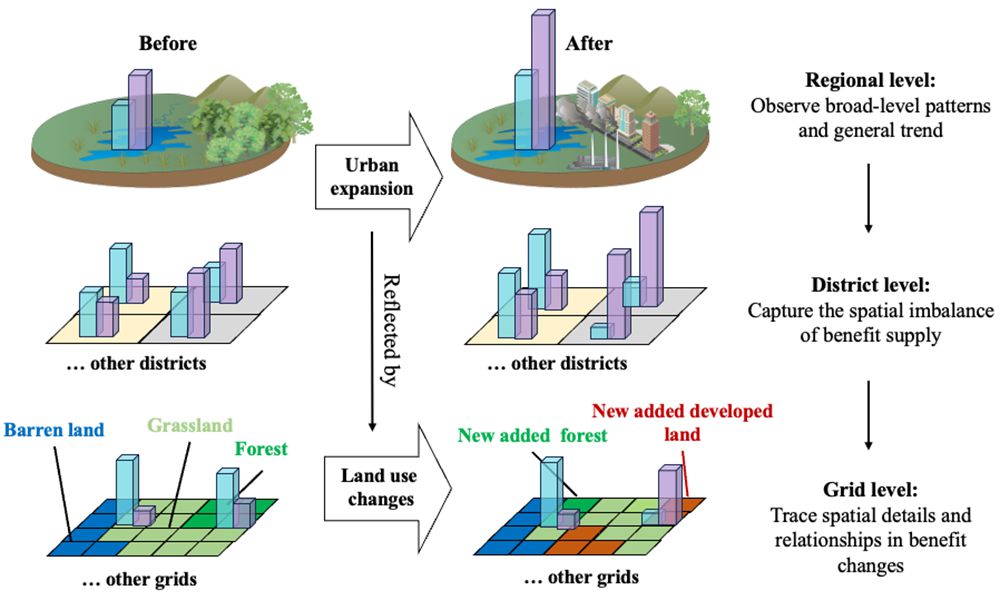Urban areas play a vital role in supporting the multidimensional well-being of residents. However, the expansion of urban areas often brings a paradox: rapid economic growth alongside the decline of vital ecosystem services. A key challenge lies in enhancing natural ecosystem services without compromising socio-economic benefits.
In a study published in Sustainable Cities and Society, researchers from Xishuangbanna Tropical Botanical Garden (XTBG) of the Chinese Academy of Sciences and their collaborators have introduced a new framework that integrates biophysical processes with the “source-flow-sink” theory. This approach enables the tracking of spatial flows of both economic benefits and ecosystem services across regional, district, and grid scales during urban growth.
Using remote sensing imagery, geographic information systems (GIS), and ecological modeling, the researchers analyzed spatial changes in economic benefits and ecosystem services resulting from urban expansion. They further explored how these changes affect residents' multidimensional well-being.
By taking the Ordos region, a key national energy base and ecological security barrier, as a case study, the researchers assessed changes in economic benefits and ecosystem services at regional and district levels, and examined the trade-offs and synergies between them.
The results reveal a complex picture: as the city expanded, economic benefits consistently increased, and certain ecological services such as soil retention and water supply improved. However, other vital services, including water purification and carbon storage, experienced significant declines.
Although both economic and ecological benefits showed an overall increase at the regional level in Ordos, there were clear spatial imbalances at the district level. Some western areas achieved a "win-win" outcome, with simultaneous gains in ecological and economic benefits. In contrast, other regions exhibited a distinct trade-off, where economic progress came at the cost of ecological degradation—highlighting the risks associated with unmanaged urban expansion.
To address these imbalances, the researchers recommended prioritizing urban green infrastructure restoration and multifunctional community construction in the eastern district. In the ecologically fragile western district, they suggest implementing revegetation with native plant species.
“Our framework provides a transferable tool to support more equitable and efficient land-use decisions that balance economic growth with ecosystem integrity and promote multidimensional human well-being in Ordos and other regions,” said BAI Yang of XTBG.

The conceptual framework illustrates the spatial dynamics of economic and ecological benefits across three analytical levels during urban expansion. (Image by XUEShi)
Available online 22 September 2025

